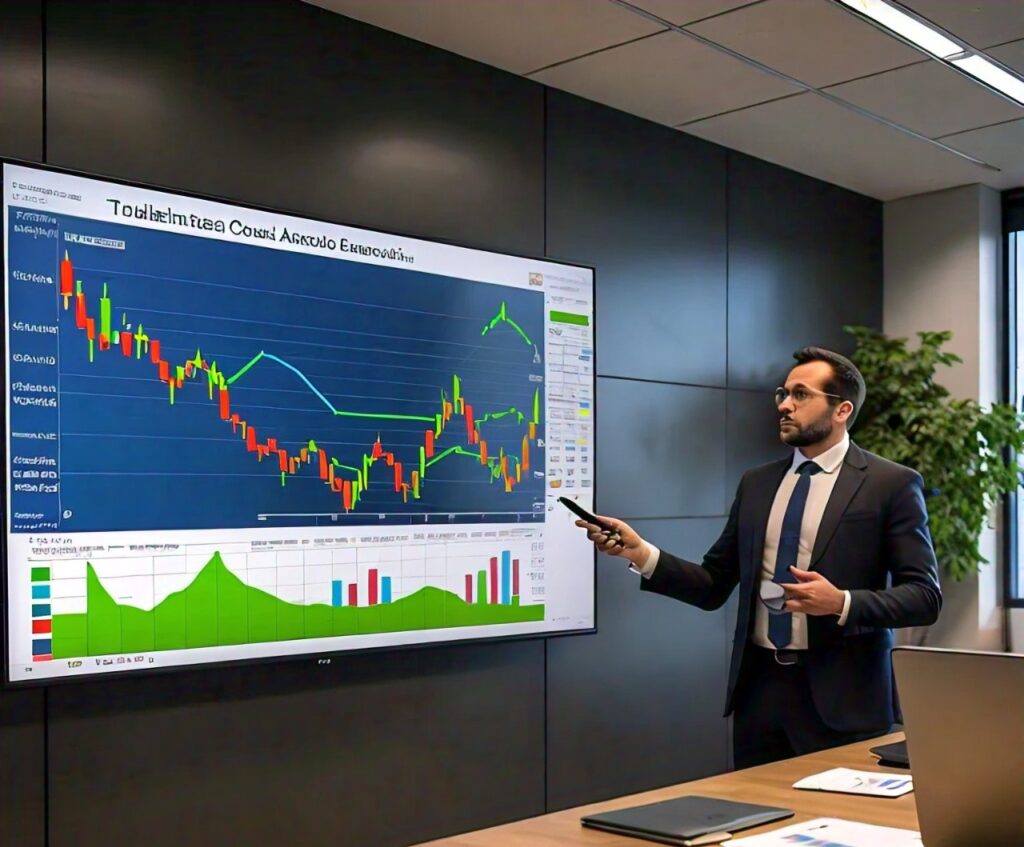In today’s interconnected global economy, emerging markets have become increasingly significant players in the supply chain landscape. These markets, characterized by rapid economic growth, evolving infrastructures, and shifting consumer demands, present both challenges and opportunities for supply chain managers. As these regions continue to develop, understanding the unique trends and dynamics that shape their supply chains is crucial for businesses looking to optimize operations and enhance competitiveness.
Supply chain managers are tasked with navigating a complex web of factors that influence sourcing, production, and distribution in emerging markets. From geopolitical considerations to technological advancements, the landscape is continuously evolving. Additionally, the rise of digital transformation and sustainability initiatives further complicates the decision-making process, requiring managers to stay informed and adaptable.
This article aims to delve into the latest trends and dynamics affecting supply chains in emerging markets, providing supply chain managers with valuable insights into the risks and opportunities associated with sourcing from these regions. By equipping themselves with this knowledge, managers can make informed strategic decisions that drive efficiency, reduce costs, and ultimately contribute to the long-term success of their organizations.
As we explore these topics, we will highlight key economic indicators, technological innovations, and the importance of building resilient supply chains that can withstand the unique challenges posed by emerging markets.
Defining Emerging Markets
What Constitutes an Emerging Market?
Emerging markets have been experiencing robust economic growth, which significantly influences global supply chains. This growth is often driven by a combination of factors such as increased domestic consumption, foreign investment, and improvements in infrastructure.
Key Economic Indicators
GDP Growth Rates: Emerging economies often exhibit higher GDP growth rates compared to developed countries. For instance, countries like India and Vietnam have consistently reported growth rates exceeding 6%, attracting businesses seeking new markets and opportunities.
Rising Middle Class: The expansion of the middle class in these regions is transforming consumption patterns. As disposable incomes rise, demand for diverse products—from consumer electronics to luxury goods—grows, prompting companies to adapt their supply chains to meet these new needs.
Foreign Direct Investment (FDI): Increased FDI is a hallmark of emerging markets, as foreign companies seek to capitalize on growth opportunities. This influx of capital often leads to improvements in local infrastructure, further enhancing supply chain capabilities.
Further Read: The Role of Business Investment in Economic Forecasting

Digital Transformation
Digital transformation is reshaping supply chains across emerging markets, driven by technological advancements and a growing emphasis on efficiency.
Technology Adoption
E-commerce Growth: The rise of e-commerce platforms is revolutionizing retail and distribution channels. Companies are increasingly leveraging online sales to reach consumers directly, requiring agile supply chains that can respond quickly to changing demands.
Supply Chain Automation: Emerging markets are adopting automation technologies, such as robotics and artificial intelligence, to streamline operations. This trend helps reduce labor costs and improve accuracy in inventory management.
Data Analytics: The use of big data analytics is becoming prevalent, enabling supply chain managers to make data-driven decisions. By analyzing consumer behavior and market trends, businesses can optimize their inventory levels and improve forecasting accuracy.
Sustainability and Ethical Sourcing
As global awareness of environmental and social issues grows, supply chain managers in emerging markets are increasingly prioritizing sustainability and ethical sourcing.
Consumer Demand for Sustainability
Green Supply Chains: Companies are focusing on implementing green practices, such as reducing waste and carbon emissions, to appeal to environmentally conscious consumers. This shift not only enhances brand reputation but also meets regulatory requirements.
Traceability and Transparency: There is a growing demand for transparency in supply chains. Consumers want to know the origins of their products and the ethical standards adhered to during production. This trend is pushing companies to adopt traceability technologies, such as blockchain, to enhance accountability.
Corporate Social Responsibility (CSR): Businesses are recognizing the importance of CSR in building trust with consumers and stakeholders. Companies that prioritize ethical sourcing and fair labor practices can differentiate themselves in competitive markets.
These current trends highlight the dynamic nature of supply chains in emerging markets. By staying informed about these developments, supply chain managers can position their organizations to capitalize on growth opportunities while navigating the associated challenges.
Key Dynamics Influencing Emerging markets supply chain
Geopolitical Factors
Geopolitical factors play a crucial role in shaping the supply chain landscape in emerging markets. Political stability, trade agreements, and diplomatic relations can significantly impact operational strategies and risk profiles.
Political Stability
Impact on Investment: Political stability is essential for attracting foreign investment. Countries with stable governments tend to foster a favorable business environment, while those facing political unrest may deter investment and disrupt supply chains.
Regulatory Changes: Supply chain managers must stay informed about changes in local regulations, trade policies, and tariffs. Sudden shifts in governance can lead to increased compliance costs and operational challenges.
Trade Policies
Free Trade Agreements (FTAs): Emerging markets are often involved in FTAs that facilitate smoother trade flows. Understanding these agreements can help supply chain managers optimize sourcing and distribution strategies.
Protectionism: Conversely, rising protectionist sentiments can lead to tariffs and trade barriers, impacting the cost and availability of goods. Supply chain managers must be agile and prepared to adjust their strategies in response to such changes.
Infrastructure Development
The state of infrastructure in emerging markets is a critical factor influencing supply chain efficiency.
Transportation and Logistics
Road and Rail Networks: High-quality transportation networks are vital for timely delivery and cost-effective movement of goods. Emerging markets with developing infrastructure often face challenges related to delays and increased logistics costs.
Ports and Airports: The capacity and efficiency of ports and airports are crucial for international trade. Investments in expanding and modernizing these facilities can significantly improve supply chain performance.
Technological Infrastructure
Internet Connectivity: Access to reliable internet and communication networks is essential for digital transformation in supply chains. Emerging markets that prioritize technological development can enhance their competitiveness.
Logistics Technology: The adoption of logistics technologies, such as tracking systems and automated warehousing, can streamline operations and improve visibility throughout the supply chain.
You can also Read: What is a Chartered Financial Analyst

Supply Chain Resilience
Building resilience in supply chains is increasingly important, especially in the context of emerging markets, where disruptions can occur due to various factors.
Risk Management Strategies
Diversification of Suppliers: To mitigate risks associated with reliance on a single supplier or region, companies are diversifying their supplier base. This approach helps ensure continuity in case of disruptions.
Scenario Planning: Implementing scenario planning allows supply chain managers to prepare for potential disruptions, such as natural disasters or political upheavals. By developing contingency plans, organizations can respond more effectively to unforeseen events.
Flexibility and Agility
Responsive Supply Chains: Supply chains in emerging markets must be agile enough to adapt to changing market conditions and consumer demands. Flexibility in sourcing and production processes can enhance responsiveness.
Collaboration and Communication: Fostering strong relationships with suppliers and stakeholders is essential for building resilient supply chains. Effective communication and collaboration can facilitate quick decision-making in times of crisis.
By understanding these key dynamics, supply chain managers can navigate the complexities of emerging markets more effectively. This knowledge enables them to develop strategies that enhance supply chain performance while minimizing risks associated with geopolitical uncertainties, infrastructure challenges, and the need for resilience.

Risks Associated with Sourcing from Emerging Markets
Economic Risks
Sourcing from emerging markets presents several economic risks that supply chain managers must consider.
Currency Fluctuations
Impact on Costs: Currency volatility can significantly affect the cost of goods and services. Sudden devaluations can lead to increased expenses for foreign companies sourcing materials or products, impacting overall profitability.
Hedging Strategies: To mitigate this risk, companies may employ hedging strategies, such as forward contracts, to lock in exchange rates and protect against unfavorable fluctuations.
Inflation Rates
Rising Costs: High inflation rates in emerging markets can erode purchasing power and lead to increased costs of raw materials and labor. Supply chain managers need to monitor inflation trends and adjust budgets accordingly.
Pricing Strategy Adjustments: Companies may need to adjust their pricing strategies to reflect increased costs, which can impact competitiveness in both local and international markets.
Political and Regulatory Risks
Political and regulatory environments in emerging markets can pose significant challenges for supply chain operations.
Regulatory Compliance
Complex Regulations: Navigating local regulations can be complex and time-consuming. Supply chain managers must ensure compliance with labor laws, environmental regulations, and import/export restrictions to avoid legal issues and fines.
Frequent Changes: Regulatory frameworks in emerging markets can change rapidly, requiring companies to stay informed and adapt their strategies accordingly.
Political Instability
Supply Chain Disruptions: Political unrest, protests, or changes in government can disrupt supply chains, leading to delays and increased costs. Companies must assess the political stability of regions where they source materials or manufacture products.
Risk Assessment Tools: Utilizing risk assessment tools and services can help supply chain managers evaluate the political landscape and make informed decisions about sourcing strategies.
You can also read: How Infrastructure Development Is Transforming Emerging Markets
Supply Chain Disruptions
Emerging markets are often vulnerable to various disruptions that can impact supply chain continuity.
Unpredictable Events: Natural disasters, such as earthquakes, floods, or hurricanes, can severely disrupt supply chains. Companies must develop contingency plans to address these potential disruptions.
Insurance and Risk Mitigation: Investing in insurance and risk mitigation strategies can help companies manage the financial impact of such events.
Global Events
Pandemics and Economic Crises: Global events, such as pandemics or economic downturns, can affect supply chains in emerging markets. Supply chain managers should be prepared to adjust their operations in response to these challenges.
Scenario Planning: Implementing scenario planning can aid in preparing for potential global disruptions, allowing companies to respond quickly and effectively.
Quality Control Issues
Maintaining product quality can be a challenge when sourcing from emerging markets.
Variability in Standards
Inconsistent Quality: Emerging markets may have varying quality standards, which can lead to inconsistencies in products. Supply chain managers must implement stringent quality control measures to ensure products meet required specifications.
Supplier Audits: Conducting regular supplier audits and assessments can help identify potential quality issues and ensure compliance with company standards.
Training and Development
Supplier Training: Providing training and support to suppliers can help enhance their capabilities and ensure adherence to quality standards.
Collaboration for Improvement: Establishing collaborative relationships with suppliers can foster a culture of continuous improvement, leading to higher quality outcomes.
Understanding these risks is essential for supply chain managers working with emerging markets. By proactively identifying potential challenges and implementing effective risk management strategies, companies can navigate the complexities of sourcing from these regions while safeguarding their operations and profitability.

Opportunities in Emerging Market Supply Chains
Cost Advantages
One of the most compelling reasons for sourcing from emerging markets is the potential for significant cost savings.
Labor Costs
Lower Labor Expenses: Many emerging markets offer lower labor costs compared to developed countries. This can lead to substantial savings in production costs, making it attractive for businesses looking to enhance profit margins.
Skilled Workforce: In addition to cost advantages, some emerging markets have a growing pool of skilled labor, particularly in sectors like technology and manufacturing. This combination of affordability and skill can be advantageous for companies seeking to optimize their operations.
Further Read: The Role of Currency Exchange Rates in Economic Forecasting
Production Costs
Raw Material Availability: Emerging markets often have abundant natural resources, which can reduce the cost of raw materials. Local sourcing may also minimize transportation costs and lead times, further enhancing cost efficiency.
Economies of Scale: As companies establish operations in emerging markets, they can benefit from economies of scale, leading to lower per-unit costs as production volumes increase.
Access to New Markets
Emerging markets provide opportunities for companies to expand their market reach and tap into new consumer bases.
Growing Consumer Demand
Expanding Middle Class: The rise of the middle class in emerging markets is creating new consumer segments with increasing purchasing power. Businesses can capitalize on this trend by offering products tailored to local preferences and needs.
Diverse Market Needs: Emerging markets often have unique cultural and economic characteristics that present opportunities for innovation and product differentiation. Understanding local customer preferences can lead to the development of new products and services.
Strategic Partnerships
Local Collaborations: Partnering with local businesses can facilitate market entry and help companies navigate regulatory environments. Local partners can provide valuable insights into consumer behavior and market dynamics.
Joint Ventures: Establishing joint ventures with local firms can enhance resource sharing and risk mitigation, creating a more robust market presence.
Innovation and Agility
Emerging markets are often hotbeds of innovation, driven by necessity and the rapid pace of change.
Local Innovations
Adaptation and Creativity: Companies operating in emerging markets can learn from local innovations that arise in response to unique challenges. This adaptability can lead to the development of new solutions and processes that improve overall efficiency.
Technology Leapfrogging: Emerging markets may skip traditional stages of technology adoption, embracing cutting-edge solutions faster than developed markets. This agility can lead to more efficient supply chain operations.
Agile Supply Chains
Responsive to Change: The dynamic nature of emerging markets requires supply chains to be agile and responsive. Companies that can quickly adapt to changing market conditions are better positioned to succeed.
Collaboration and Communication: Building strong relationships with local suppliers, logistics providers, and other stakeholders fosters collaboration and enhances supply chain agility. Effective communication channels facilitate quick decision-making and problem-solving.
By recognizing and leveraging these opportunities, supply chain managers can enhance their competitiveness and drive growth in emerging markets. The potential for cost savings, market expansion, and innovation underscores the importance of strategic planning and adaptability in navigating this complex landscape.
Also Read: Why Retail Sales Figures Are a Leading Economic Indicator
Conclusion
As supply chain managers navigate the complexities of emerging markets, understanding the unique trends, dynamics, risks, and opportunities is essential for success. Emerging markets present a landscape rich with potential—characterized by rapid economic growth, evolving consumer demands, and technological advancements. However, these opportunities are accompanied by challenges, including geopolitical uncertainties, infrastructure limitations, and quality control issues.
Through our exploration of the critical factors influencing supply chains in these regions, it becomes clear that strategic planning and adaptability are paramount. Successful companies have demonstrated that tailored approaches, local partnerships, and effective risk management can lead to significant advantages. Conversely, failures often result from a lack of preparation and understanding of local market conditions.
By employing the strategic recommendations outlined in this article—conducting thorough market research, building local partnerships, implementing robust risk management strategies, and leveraging technology—supply chain managers can enhance their competitiveness and operational efficiency in emerging markets.
In conclusion, the evolving landscape of global supply chains requires a proactive and informed approach. As emerging markets continue to grow in importance, supply chain professionals who equip themselves with the knowledge and tools to navigate this terrain will be well-positioned to drive their organizations toward lasting success.






